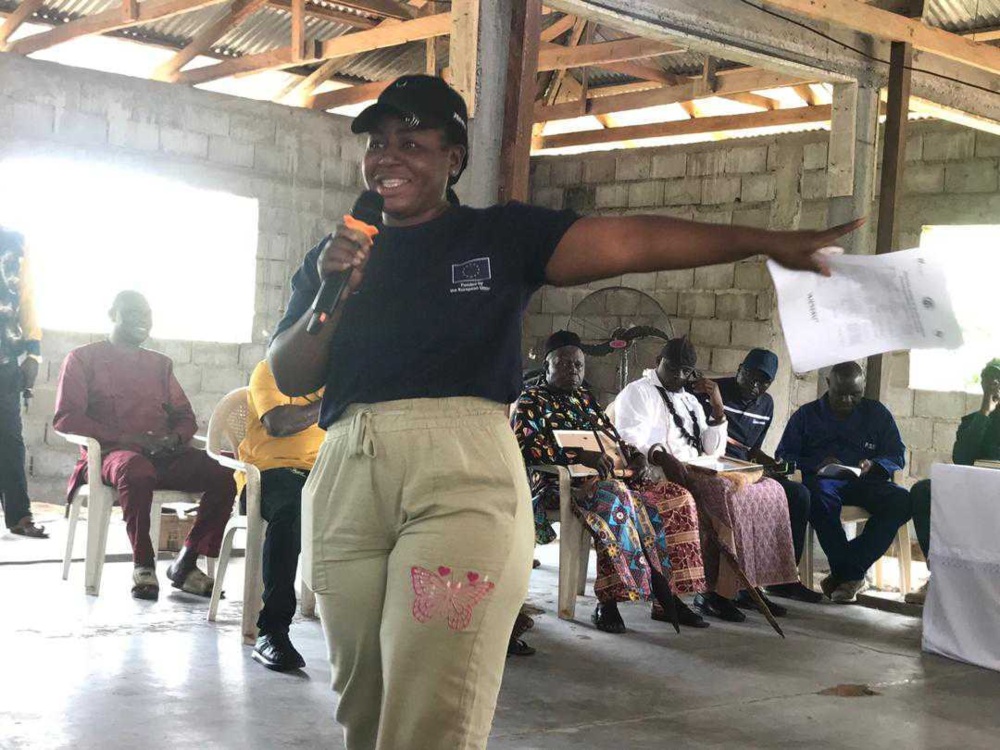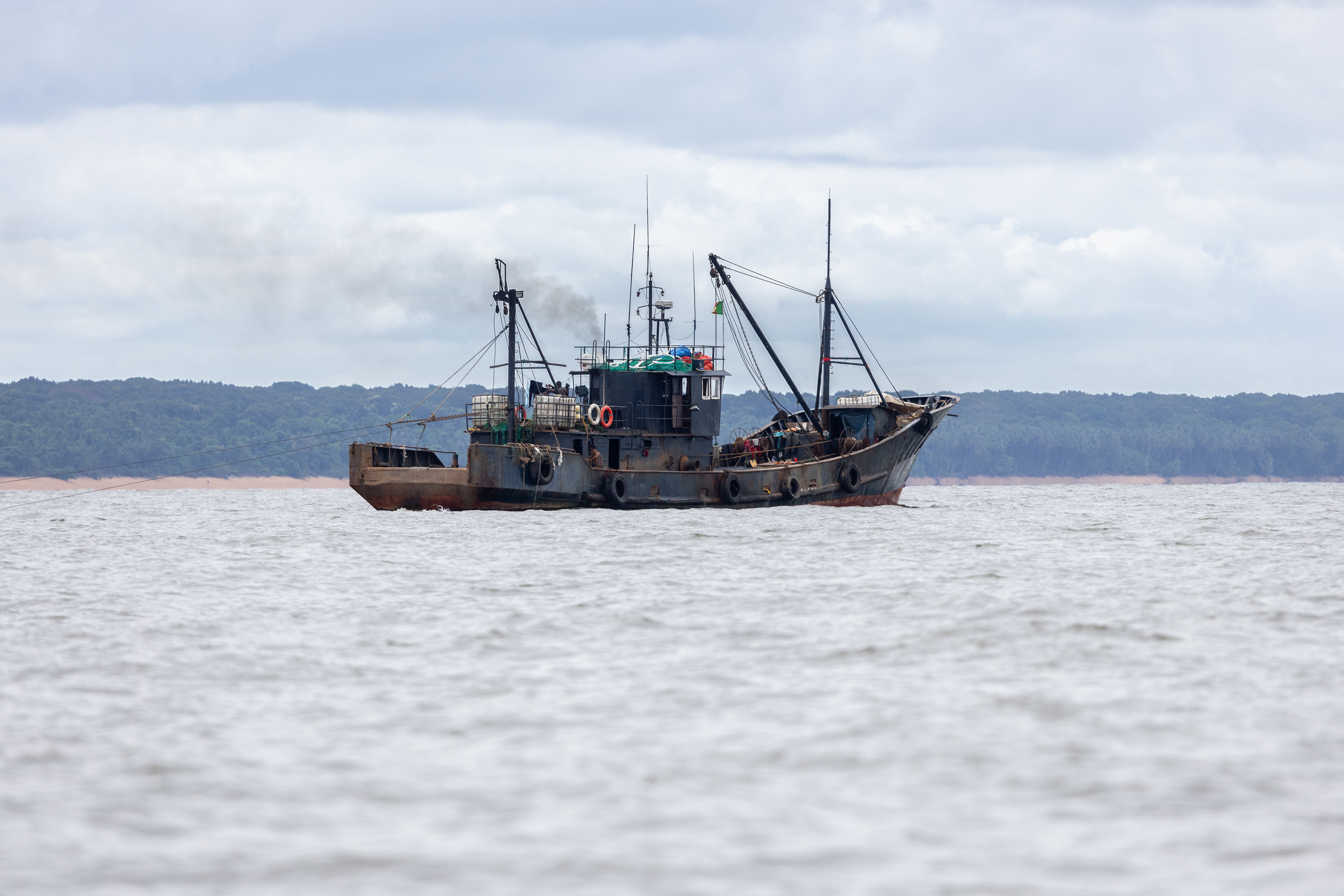
Cameroon’s first community-led fisheries committees give local people real power to manage marine resources
Yoyo and Mbiako, Cameroon
In a landmark step for community-led sustainable fisheries, two Local Collaborative Management Committees (LCMCs) have been formally established and elected in Cameroon’s coastal communities of Yoyo and Mbiako. These committees give local people direct decision-making power over the fisheries they rely on, marking a new era of inclusive, community-driven management.
The newly elected LCMCs bring together representatives from diverse social groups, including Ghanaian, Nigerian, and Cameroonian fishers, women, youth, and village chiefs, ensuring that all voices in the community contribute to decisions. In Yoyo, the 10-member committee includes representatives from both Yoyo I and Yoyo II, two women, two youth representatives from migrant communities, alongside both village chiefs.
Mbiako’s 10-member committee similarly reflects the community it serves, with dedicated youth representation. Two women were elected. In both Yoyo and Mbiako, women will serve as the Vice Presidents of the LCMCs. By involving women and youth in leadership roles, the committees draw on the full range of experience, ideas, and knowledge within the community, shaping decisions that are effective, equitable, and sustainable, says EJF.
LCMCs play a vital role in the collaborative governance of protected areas and fisheries, according to the NGO. They monitor illegal extraction, mediate between communities and government institutions, and promote sustainable development at the local level. Alongside this, the committees will guide local decisions on seasonal fishing restrictions, helping ensure fish populations can reproduce and thrive while supporting the livelihoods of the people who depend on them.
“Today marks a historic milestone for the conservation and sustainable development of the Douala-Édéa National Park. The official installation of the Local Collaborative Management Committees (LCMCs) symbolises Cameroon’s commitment to involving local communities in the protection of its natural resources. To the elected members of the LCMC, this installation is not the end, but the beginning of a new era, where communities take charge of their ecological destiny”, said Kenneth Mvondo, Conservator of the Douala-Édéa National Park.
“Local people are best placed to protect their fisheries and ecosystems, and with the right support, they are powerful stewards of the ocean,” said EJF CEO and Founder Steve Trent. “These committees are a model for inclusive governance, ensuring that the people who live closest to these vital fisheries are at the heart of managing them.”
Nsowa Immaculate Munkeng, EJF Programme Officer, Francophone Africa, said, “The successful establishment of Yoyo and Mbiako’s LCMCs provides a tested model for community-led fisheries governance that can be replicated across Cameroon. It aligns with national policy while putting people and ecosystems first, supporting Cameroon’s broader goals for sustainable fisheries, biodiversity conservation, and resilient coastal communities.”
The committees will strengthen community oversight through participatory fisheries surveillance, using EJF’s DASE app to document suspected illegal fishing. Local people are provided with phones and training to take geotagged photos, which are uploaded to a national database that helps authorities track down and sanction those responsible.
This initiative is part of EJF’s EU-funded Global Toolkit for Participatory Fisheries Governance, which supports sustainable, equitable management of Cameroon’s marine resources. The LCMCs will draft constitutions aligned with the Voluntary Guidelines on the Responsible Governance of Tenure, a globally recognised standard for safeguarding community rights.
ENDS
Notes to editors
The LCMCs were established under Cameroon’s 2024 Guidelines for the Involvement of Local Communities in the Management of Protected Areas.
The process was led by EJF in partnership with the Cameroon Wildlife Conservation Society (CWCS) and the Ministry of Forestry and Wildlife, through the Conservation Service of Douala-Édéa.
The committees were formed after an intensive year-and-a-half process that began in November 2023, involving local chiefs, representatives from the Ministry of Forestry and Wildlife (MINFOF), the Ministry of Livestock, Fisheries and Animal Industries (MINEPIA), community leaders, youth and women, working closely with EJF and partners to ensure the process was inclusive, transparent, and participatory.
About EJF
Our work to secure environmental justice aims to protect our global climate, ocean, forests, wetlands, wildlife and defend the fundamental human right to a secure natural environment, recognising that all other rights are contingent on this. EJF works internationally to inform policy and drive systemic, durable reforms to protect our environment and defend human rights. We investigate and expose abuses and support environmental defenders, Indigenous peoples, communities, and independent journalists on the frontlines of environmental injustice. Our campaigns aim to secure peaceful, equitable and sustainable futures. Our investigators, researchers, filmmakers, and campaigners work with grassroots partners and environmental defenders across the globe. For more information or to organise an interview with one of our team, please contact media@ejfoundation.org.
This press release has been produced with the assistance of the European Union. The contents of this publication are the sole responsibility of the Environmental Justice Foundation and can in no way be taken to reflect the views of the European Union.

SIGN UP FOR OUR EMAILS AND STAY UP TO DATE WITH EJF

